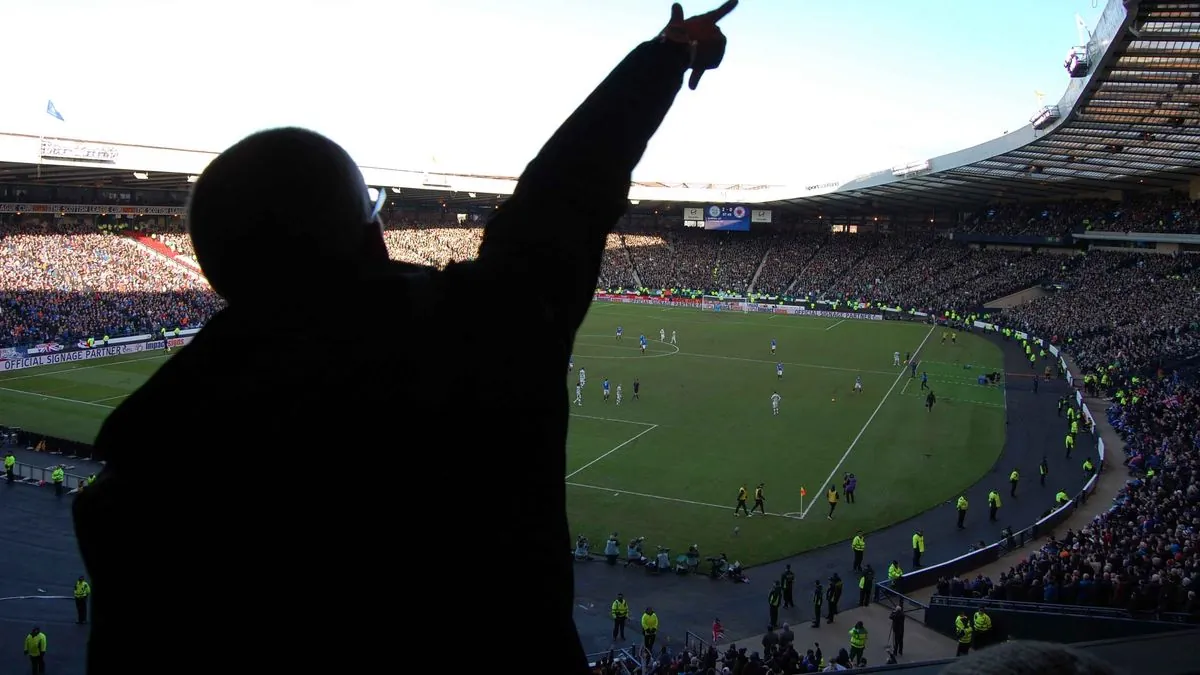The Scottish government is considering proposals to lift the long-standing ban on alcohol sales at football stadiums, a restriction that has been in place for over four decades. Neil Gray, the Scottish Health Secretary, has expressed willingness to give "serious consideration" to any plan brought forward to end the prohibition.
The alcohol ban at Scottish football grounds was implemented following the infamous Hampden riot of 1980, when supporters of Rangers and Celtic clashed on the pitch after the Scottish Cup final. This incident led to strict regulations on alcohol consumption at matches, which have remained in place for 44 years.
George Adam, an SNP Member of the Scottish Parliament (MSP) representing Paisley, argues that the football landscape has evolved significantly since the 1980s. He contends that other sports in Scotland, such as rugby, already permit alcohol sales within their venues. Adam suggests that lifting the ban could provide football clubs with a much-needed additional revenue stream, especially in challenging economic times.
The potential economic benefits for clubs are a key factor in the ongoing discussions. With the Scottish Professional Football League (SPFL) overseeing 42 member clubs across four divisions, the financial impact of alcohol sales could be substantial. This is particularly relevant given that football is the most popular sport in Scotland, with a rich history dating back to the formation of the Scottish Football Association in 1873.
However, the proposal has met with opposition from health advocacy groups. Alison Douglas, chief executive of Alcohol Focus Scotland, warns that lifting the ban would be "a step in the wrong direction." This concern is underscored by recent data showing that alcohol-related deaths in Scotland have risen to a 15-year high. Douglas emphasizes the importance of maintaining a "90-minute circuit breaker" in match-day drinking to ensure a safer and more inclusive environment for families and all spectators.
The Scottish Government's approach to this issue reflects the complex interplay between sports, economics, and public health. Scotland has implemented various measures to address alcohol-related problems, including the introduction of minimum unit pricing for alcohol in 2018. The country also has a higher rate of alcohol-related deaths compared to other parts of the UK, making any changes to alcohol policies particularly sensitive.
As discussions continue, the government has committed to engaging with a wide range of stakeholders, including the SPFL, supporters' groups, and individual clubs. This collaborative approach aims to find a balance between enhancing the fan experience and maintaining public safety.
The debate over alcohol at football matches is set against the backdrop of Scotland's unique legal system and the Scottish Parliament's devolved powers over alcohol licensing. Any decision to lift the ban would likely involve careful consideration of its potential impact on public health, stadium safety, and the overall culture of Scottish football.
"You already have alcohol at football games in corporate, it's just a case of finding other areas or zones in grounds to do that and make sure it's a safe and controlled environment for everyone."
As the Scottish Government weighs this significant policy change, it must navigate the interests of various groups while prioritizing public safety and health. The outcome of these deliberations could mark a new chapter in the relationship between alcohol and football in Scotland, potentially altering match-day experiences for the passionate supporters known as the "Tartan Army" and casual fans alike.
